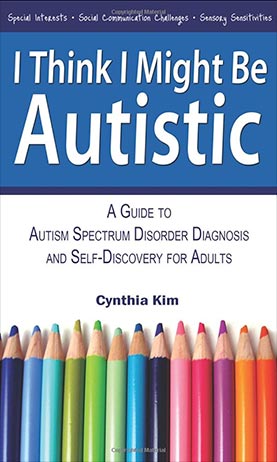
Autism has crawled its way into our everyday awareness. However, the disorder has remained a mystery, as have those who carry its diagnosis. In the last decade, a shift occurred, altering popular thought from fear to understanding and acceptance. Today we explore minimal adult autism and love.
Over the years, even the therapeutic manual which defines psychiatric disorders has had some clarity difficulties—altering the umbrella definition of The Autism Spectrum in 2013. The Diagnostic and Statistical Manual of Mental Disorders (DSM-5) now groups several diagnoses which affect a vast range of symptoms and skills under the same heading. Levels and styles of communication, education, socialization, and behavior are affected. Since the continuum of symptoms is long, many people can be ‘on the spectrum,’ their symptoms with only a thread of common ground.
So, what might minimal ASD (Autism Spectrum Disorder) look like in a functioning adult?
‘On the spectrum’ adults are often shy and have difficulty making friends or initiating conversation. It is helpful if the non-spectrum adult leads the way in social situations. Your partner will chime in on topics of interest to them.
They also dislike eye contact, preferring to talk while looking elsewhere, perhaps at the horizon or their shoes. Have conversations while sitting side-by-side, instead of looking at each other, and keep those discussions short.
Routines and rituals are fundamental as adhering to them provide stability. Pushing to dine in a new restaurant, exploring unknown vacation spots, or attending a conference of your interest but not theirs, would need to be carefully introduced and proposed for possible acceptance. Surprises create anxiety.
This concept is also valid when considering their ownership and appreciation of objects and things. Spontaneous redecorating or debulking of items will cause unnecessary agitation. Approach slowly and leave familiar items within sight.
With understanding, everything mentioned in this blog is surmountable. ‘On the spectrum’ adults are often highly successful as they have an increased ability for intense and focused interests, often carving their future professional goals and achievements. Typically, they are brilliant, preferring intellect over imaginative play—a good thing to know when offering date options or vacation concepts.
Major television networks, social media personalities, and successful business entrepreneurs have helped to put a face on this common mental health condition affecting one of every four people.
Who doesn’t react with a smile to “Penny…Penny…Penny?” For twelve years, the Big Bang Theory’s Ph.D. physicist Sheldon Cooper called his neighbor, his face inches from her closed door while repetitively knocking.
Try listening to the music of English composer, record producer, and digital influencer Stephen Hilton. He helped write the musical scores for Transformers, Moulin Rouge, Pirates of the Caribbean, and Oceans 11. Following his recent ASD diagnosis, he is composing music specifically written to reduce anxiety and agitation in affected children and adults.
Elon Musk delights onlookers as he succeeds with another brilliant, inventive adventure. At fifty, this entrepreneur and business magnate has distinguished himself as the CEO of SpaceX and Tesla, Inc, while flourishing with ASD.
The newly released Amazon Prime Series, Reacher, is based on novels by Lee Child. The muscular central character, Jack Reacher, exhibits many ‘on the spectrum’ character traits. Watch the series and see if you can identify them.
Loving someone on the spectrum can be highly enriching, satisfying, and last a lifetime. Your patience and understanding are necessary keys to a loving future.


